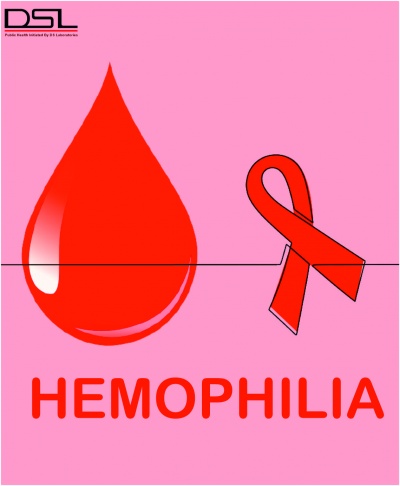


Hemophilia is a rare bleeding disorder in which the blood does not able to clot properly because of not enough blood-clotting proteins. Blood clotting proteins helps blood to coagulate by change it from liquid to gel form. Patient with this disorder experience prolonged bleeding or oozing following any injury or surgery.
Cause:
Hemophilia is an inherited genetic condition caused by a mutation or change in one of the genes that instruct clotting factor proteins needed to form a blood clot.
Types:
There are different types of hemophilia, but the most common are:
Hemophilia A: Caused by lack or decrease of clotting factor VIII
Hemophilia B: Caused by lack or decrease of clotting factor IX
Risk Factors:
The common risk factor is to have parent either with hemophilia or a carrier of that. Males are at high risk to have hemophilia than females.
Symptoms:
Excessive bleeding from cuts or injuries, or after any surgery.
Unusual bleeding after vaccinations
Internal bleeding might happen
Spontaneous nosebleeds are common.
Unexplained bruises
Pain in joints with swelling and tightness
Treatment:
Replacement therapy is the main treatment for severe hemophilia by replacing the clotting factor that is lack or decrease in blood. This therapy is done by injecting clotting factor concentrates into vein.
Reference:
https://www.mayoclinic.org/diseases-conditions/hemophilia/symptoms-causes/syc-20373327
https://www.healthline.com/health/hemophilia#causes
https://www.cdc.gov/ncbddd/hemophilia/facts.html